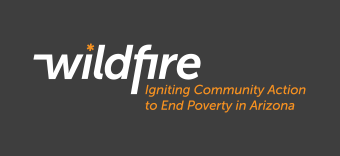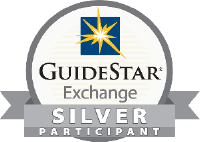Community Action Agency Toolkit
Community Action Agencies (CAA) are trusted local organizations that receive federal funding through the Community Services Block Grant (CSBG) with the goal of reducing poverty through locally controlled programs that respond to local needs. CSBG flows federally through the state to CAAs, with at least 90% of the funds required to pass onto local agencies. In FY23, Arizona’s 12 CAAs assisted 122,037 people. Now, this funding is at risk, requiring advocacy and education efforts to preserve CSBG and Community Action.
Check back here for updates on the toolkit for combating proposed cuts to funding for Community Action Agencies.
Using the Toolkit
- This toolkit is intended for use by Arizona’s Community Action Agencies and their allies who wish to protect our communities from devasting cuts to vital assistance programs.
- This toolkit contains resources and advocacy opportunities from various organizations. Where appropriate, sources will be linked and original authors referenced. Despite referencing these groups, this toolkit was made independently of these organizations and does not represent the viewpoints or strategies of these groups, nor does it mean Wildfire endorses the viewpoints or strategies of these groups.
- 501(c)(3) nonprofits are allowed to freely participate in a number of advocacy activities but may be required to track certain activities that are considered lobbying. Nonprofits can and should advocate.
- Alliance for Justice has many useful resources for navigating this:
- National Coalition of Nonprofits: Advocacy vs Lobbying
- IRS info on Lobbying
Federal Updates: CSBG is in Jeopardy - as of 5/22/25
- Congressional Budget Process
- Early April: The amended budget resolution was passed by both the Senate (on April 5th) and the House (on April 10th).
- These actions moved the budget process to the reconciliation stage—a significant step that allows for expedited consideration.
- The resolutions set requirements to cut a minimum of $4 billion up to a maximum of $1.5 trillion from the budget. The budget cuts are aimed at reducing federal spending overall while also funding significant tax cuts and increased spending on immigration and defense.
- Now, the committees draft recommendations for spending and/or revenue changes based on the resolution, and after marking them up, consolidate them into one big reconciliation package.
- May 22, 2025: The House passed HR1, the budget reconciliation package. This was the next step to the resolution passed in April. Now, the bill will move to the Senate with the benefits of a reconciliation process including: simple majority to pass, limited debate time, and inability to filibuster. Any amendments at this point must be deficit-neutral or lower the deficit, but changes cannot increase the proposed deficit.
- While we are still reviewing the bill to understand the impact on Community Action specifically, here are some resources to understand specific impacts:
- Health Coverage
- Detailed information on provisions
- Food Assistance/SNAP
- CBO on SNAP impacts & Energy Assistance (page 3)
- Impact on Deficit – 5/20/25
- Health Coverage
- While we are still reviewing the bill to understand the impact on Community Action specifically, here are some resources to understand specific impacts:
- Early April: The amended budget resolution was passed by both the Senate (on April 5th) and the House (on April 10th).
- May 2, 2025: The Administration’s proposed FY26 “skinny” budget eliminates the Community Services Block Grant (CSBG), which largely funds Community Action Agencies (CAA).
- The reasoning provided for eliminating CSBG: “The Budget proposes to eliminate dollars that flow to Community Action Agencies who carry out their own agendas. These grants are laden with equity-building and green energy initiatives, such as the California Community Action Partnership, that focus its efforts on bringing “DEI to the forefront,” by “offering focus groups, extensive training opportunities, and engaging in fruitful partnerships,” on “how we could transform the systems and structures that hold these inequities in place, looking at policies and resource flows, power dynamics and really mental models that we need to shift in order to change the system.” According to HHS, a Community Action Agency in Wisconsin used “CSBG funds to combine clean energy with affordable housing in the pursuit of both economic and environmental justice.” Americans in need of job-training and a helping hand would be better served by programs funded at the Departments of Labor and Agriculture. According to GAO’s 2019 study of the program, HHS “cannot assure the Congress and the American public that the funding is meeting its intended purpose to reduce the causes of poverty.” (page 10)
- Other Significant Budget Notes:
- Eliminates funding for the Low Income Home Energy Assistance Program (LIHEAP) (page 9). The Trump Administration proposed this in 2017 as well.
- While the budget does not reference Weatherization specifically, it cuts almost 75% of the Office of Energy Efficiency and Renewable Energy (EERE), which funds Weatherization (page 21).
- 15.3% cut to the Department of Education (Table 2).
- Eliminates or significantly reduces many affordable housing resources under the Department of Housing and Urban Development like the State Rental Assistance Block Grant and Community Development Block Grant (page 25)
- May 1, 2025: HR3131 – Community Services Block Grant Improvement Act of 2025 referred to committee. See actions for this under “Call to Action”
Arizona’s Elected Official’s Positions
- Here is NCAF’s David Bradley’s CSBG priority list for HR 3131 + saving CSBG.
- Representatives Schweikert, Crane, Stanton, and Ciscomani are Arizona’s priority elected officials as of 5/22/25.
- While there have been limited direct positions taken on CSBG, there are some indicators of which officials would support cuts to CSBG:
- In 2022, the House passed the Community Services Block Grant Modernization Act. Representatives Schweikert, Biggs, and Gosar voted against it, while Gallego and Stanton voted for it. This suggests that Representatives Schweikert, Biggs, and Gosar would likely support CSBG cuts in the proposed budget, whereas Rep. Stanton and Senator Gallego may oppose cuts– though Rep. Stanton is a priority target.
- Opportunities for persuasion:
- Representatives Ciscomani, Schweikert, and Crane represent districts where the elected candidate often wins by small margins, making it more likely to change their position with public pressure.
- Because CSBG is a small program and can get confused with other block grants, there is concern that the program will be overlooked even by officials who support it. It is very important to educate officials about the assistance offered by CAAs and its value. Review the 2025 talking points for best framing and key words that can help or hurt your case. Prioritize contacting House members first. If you have a meeting scheduled with your Member of Congress, touch-base with NCAF so they can give you any individualized talking points.
Find Your Members of Congress
To search for your Congressional Members by location, go here. Otherwise, the CAA’s correspond to Congressional Districts (CD) as follows:
- CAHRA: CD2, CD5, CD6, CD7
- City of Glendale: CD3, CD8, CD9
- City of Phoenix: CD1, CD3, CD4, CD7, CD8, CD9
- Coconino County: CD2
- Gila County: CD2
- Maricopa County: CD1, CD2, CD3, CD4, CD5, CD7, CD8, CD9
- MesaCan A New Leaf: CD1 (slight overlap), CD4, CD5
- NACOG: CD2
- Pima County: CD6, CD7
- SEACAP: CD2, CD6, CD7
- WACOG: CD2, CD7, CD8, CD9
| Name | District County | Contact |
| Senator Mark Kelly (D) | Statewide | 516 Hart Senate Office Building Washington, DC 20510
(202) 224-2235 |
| Senator Ruben Gallego (D) | Statewide | 302 Hart Senate Office Building Washington, DC 20510
(202) 224-4521 |
| Rep. David Schweikert (R) | CD1
Maricopa |
166 Cannon House Office Building
(202) 225-2190 |
| Rep. Elijah Crane (R) | CD2
Apache, Coconino, Gila, Graham, Maricopa, Mohave, Navajo, Pinal, Yavapai |
307 Cannon House Office Building
(202) 225-3361 |
| Rep. Yassamin Ansari (D) | CD3
Maricopa |
1432 Longworth House Office Building
(202) 225-4065 |
| Rep. Greg Stanton (D) | CD4
Maricopa |
207 Cannon House Office Building
(202) 225-9888 |
| Rep. Andy Biggs (R) | CD5
Maricopa, Pinal |
464 Cannon House Office Building
(202) 225-2635 |
| Rep. Juan Ciscomani (R) | CD6
Cochise, Graham, Greenlee, Pima, Pinal |
461 Cannon House Office Building
(202) 225-2542 |
| Vacant | CD7
Cochise, Maricopa, Pima, Pinal, Santa Cruz, Yuma |
Primary Election: July 15, 2025
General Election: September 23, 2025 |
| Rep. Abraham Hamadeh (R) | CD8
Maricopa |
2057 Rayburn House Office Building
(202) 225-2315 |
| Rep. Paul Gosar (R) | CD9
La Paz, Maricopa, Mohave, Yuma |
1722 Longworth House Office Building
(202) 225-4576 |
Talking Points & Factsheets
- CAAs are locally controlled and respond to local needs—highlight what that means for your Member’s district, including programs and services.
- National Community Action Foundation (NCAF) Resources
- FY 2023 CSBG Fact Sheet by NASCSP
Call to Action - As of 5/22/25
- Collect client stories: Follow these directions to add your logo, print out, and utilize these cards for clients to share what community action means to them. Mail them back to Wildfire or make copies and take them to your meetings with elected officials.
- From National Community Action Foundation (NCAF):
- [URGENT] Meet with elected officials: Set up a meeting with the congress people with districts overlapping your service territory. Educate them about what community action looks like in their district and the services offered. Use the talking points and fact sheets to guide the conversation.
- Here is David Bradley’s CSBG priority list for HR 3131 + saving CSBG.
- If you have a meeting scheduled with your Member of Congress, touch-base with NCAF so they can give you any individualized talking points.
- If you’ve recently met with your Member of Congress, please let NCAF know how it went.
- NCAF needs to know about the current state of your relationship with your member — please fill out this survey ASAP.
- Support HR3131 – Community Services Block Grant Improvement Act of 2025
- Say thank you to the HR 3131 lead sponsors on X! (Especially if you are in their districts!):
- Congressman Glenn Thompson (R-PA-15) – @CongressmanGT
- Congresswoman Suzanne Bonamici (D-OR-01) – @RepBonamic
- Say thank you to the current HR 3131 co-sponsors on X! (Especially if you are in their districts!):
- Congressman Hal Rogers (R-KY-05) – @RepHalRogers
- Congressman Mark DeSaulnier (D-CA-10) – @RepDeSaulnier
- Congressman André Carson (D-IN-07) – @RepAndreCarson
- Congressman Mark Messmer (R-IN-08) – @RepMessmer
- Say thank you to the HR 3131 lead sponsors on X! (Especially if you are in their districts!):
- FY26 CSBG Request
- Representatives Jim Costa (D-CA-21) and Brian Fitzpatrick (R-PA-01) are circulating a letter through the U.S. House of Representatives asking their colleagues to join them in requesting $780 million for the Community Services Block Grant (CSBG) in FY2026 as well as continuing the policy of allowing CAAs to assist households with incomes of up 200% of the poverty line.
- ASK: Please reach out to your House member and ask them to sign this letter using Quill. If you need any assistance or a template, feel free to reach out to NCAF.
- [URGENT] Meet with elected officials: Set up a meeting with the congress people with districts overlapping your service territory. Educate them about what community action looks like in their district and the services offered. Use the talking points and fact sheets to guide the conversation.
Advocacy and Lobbying Training
Posted 06-30-25
Click here to access Wildfire’s online training regarding advocacy and lobbying or view below. (52 min.)
After you watch the training, please click here and take 5 minutes to complete our evaluation survey.

